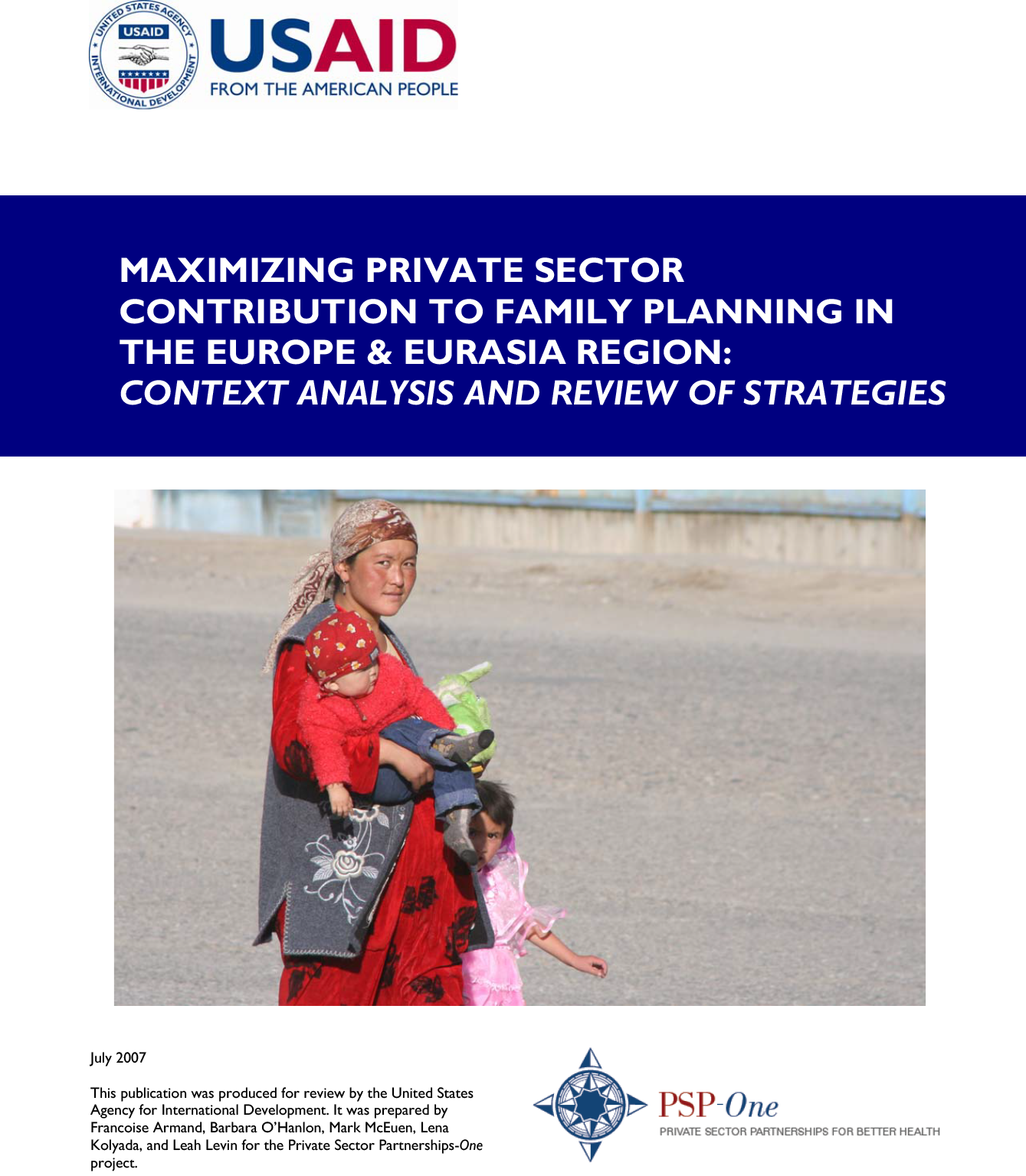
Resource Library
Maximizing Private Sector Contribution to Family Planning in the Europe & Eurasia Region: Context Analysis and Review of Strategies
The private sector is increasingly recognized globally as a key partner in addressing social sector issues in emerging markets. Product suppliers, private sector service providers, and nongovernmental organizations can help meet the public's demand for reproductive health and family planning (RH/FP) services and products. Yet, in many transitional economies such as those in the Eastern Europe and Eurasia (E&E) region, the private sector is not fully involved in meeting these health needs. Reasons range from restrictive legal and policy environments that impede expansion of private health services, to low public and private investment in growing the contraceptive market. This report is the outcome of a request by USAID's E&E Bureau to the Private Sector Partnerships-One (PSP-One) project to conduct a desk review of the body of knowledge regarding private sector contribution to RH/FP in the region. This document is designed to inform USAID Missions and bilateral RH/FP programs in the E&E region about the private sector's current activities, as well as opportunities for further leveraging this sector in meeting RH/FP goals. The paper includes the following sections:
- A methodology to analyze the "total" RH/FP market – that is, both the public and private sectors – in assessing demand for and access to FP services and products;
- An overview of opportunities and constraints to the private sector in the legal, regulatory, and policy environment in the E&E region;
- A description of current practices in the E&E region that foster a greater private sector role in the provision of FP services and products;
- Recommendations for leveraging and maximizing private sector contribution to RH/FP goals in three defined country contexts
This report compiles and analyzes information collected during assessment visits to six countries of the E&E region in 2005-2006. The assessment analyzed the private sector market in those countries and looked at contraceptive security issues for FP. Assessment findings were supplemented with a literature review of project reports from existing USAID bilateral projects implementing FP and other health-related programs. Countries studied were Albania, Armenia, Azerbaijan, Georgia, Kazakhstan, Kyrgyzstan, Romania, Russia, Tajikistan, Ukraine, and Uzbekistan. These countries are considerably diverse in terms of income, economic and social development, unmet RH/FP need, and market maturity. At the same time, they share characteristics unique to this part of the world, particularly with respect to reproductive behavior, private sector growth, and health sector reforms.
Resource Type : Report
Country :
Year : 2007-09-05T16:00:00
Language : English
Project : SHOPS


